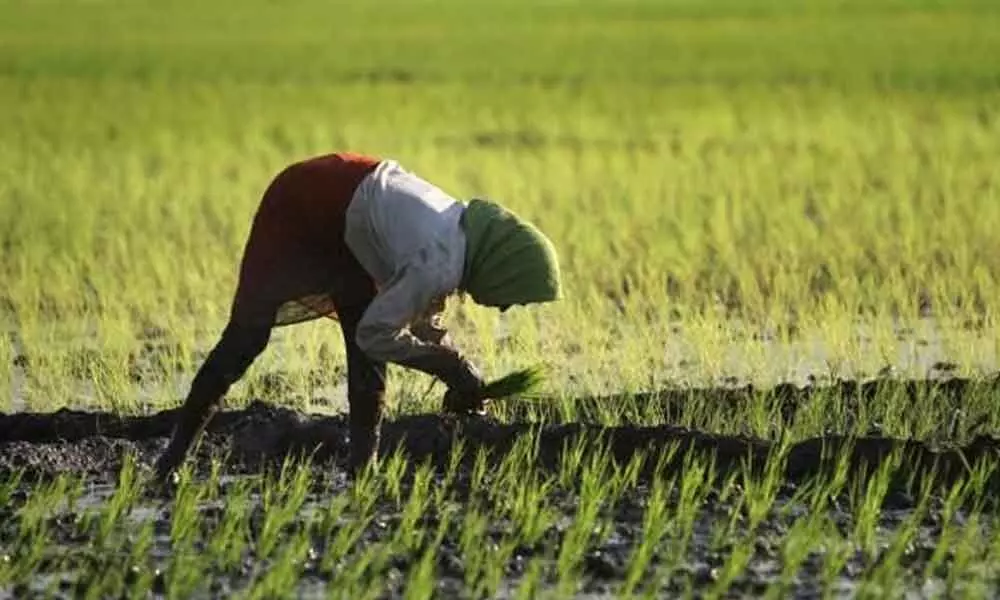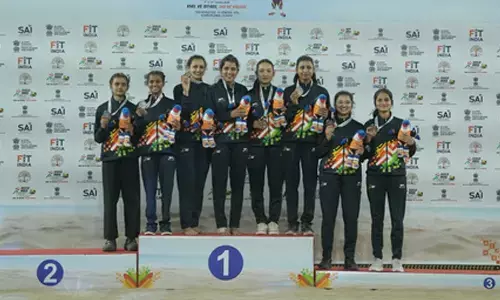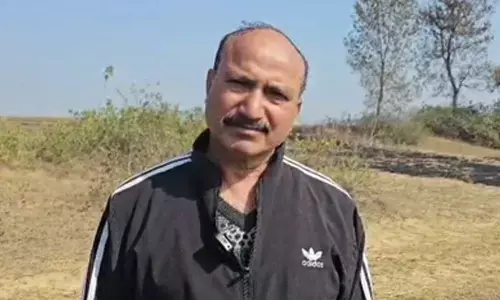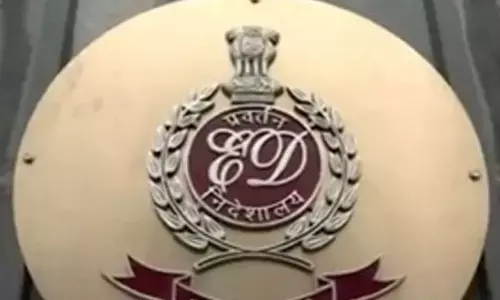Will Direct Seeding of Rice lessen water burden on Telangana?

Will Direct Seeding of Rice lessen water burden on Telangana?
- PJTSAU and Pranadhara to explore adopting the DSR method of paddy plantation that requires less amount of water
- If adopted, it is likely to reduce input costs to about 10,000 per acre
Hyderabad: The Direct Seeding of Rice, a transplantation process popularly known as the DSR method, is likely to give some respite to the two Telugu states that have been at loggerheads over sharing of river water, and help them gain profits.
It may be mentioned here that both Telangana and Andhra Pradesh have been fighting sharing of Krishna and Godavari river waters and have been seeking something on the lines of Sutlej-Yamuna link between Punjab and Haryana.
According to officials in the Agriculture department, both the States consume about 1,100 TMC of water for irrigation. Speaking to The Hans India, a senior irrigation official from AP said, "Since the time of united AP, around 50 per cent of the irrigation water is being consumed for cultivating paddy. Further, the only difference now is that the two States are competing over their share of river water. Particularly, what is driving both is the major water demand for the cultivation of rice."
According to Agriculture department, there is a phenomenal increase in the production of paddy in the State after the formation of sperate Telangana. The availability of water has gone up unlike in the united AP.
However, the Telangana is asking farmers to go for crop diversification and cultivate alternative crops like pulses, palm oil etc in the wake of low-income generation on the paddy.
Against this backdrop, Professor Jayashankar Telangana State Agriculture University (PJTSAU) and Pranadhara, a non-governmental organisation, have now proposed to explore the possibility of farmers adopting the DSR method for cultivating rice in the State.
Recently, a meeting was held between the representatives of the Pranadhara and the PJTSAU vice-chancellor Dr V Praveen Rao.
Currently, the NGO has guided farmers to cultivate paddy adopting the DSR technique to an extent of about 5,000 acres in Guntur district of Andhra Pradesh. Similar experimentation has already been initiated to an extent of about 600 acres in Khammam and Karimnagar areas in Telangana.
Stressing on the need for mechanisation in the agriculture sector, Dr Praveen Rao has asked the research and development wing of the university and the Pranadhara to come up with an action plan to pilot the DSR technic for cultivation of paddy in the State.
Unlike the traditional method of preparation of seedbeds to transplant paddy, farmers can directly sow the pre-germinated seeds in the land through DSR method. Farmers need not look after plants every day and they have to maintain flooding of 4 to 5 cm of water in the field. Besides, the shorter flooding period in the DSR method also reduces methane emission. On all counts, a farmer is expected to reduce input costs of Rs 10,000 per acre through the DSR method. However, non-availability of herbicides, the quantity of the number of seeds needed per acre, laser land leveling and others are the issues that need to be examined, said the officials of the Agriculture department.















